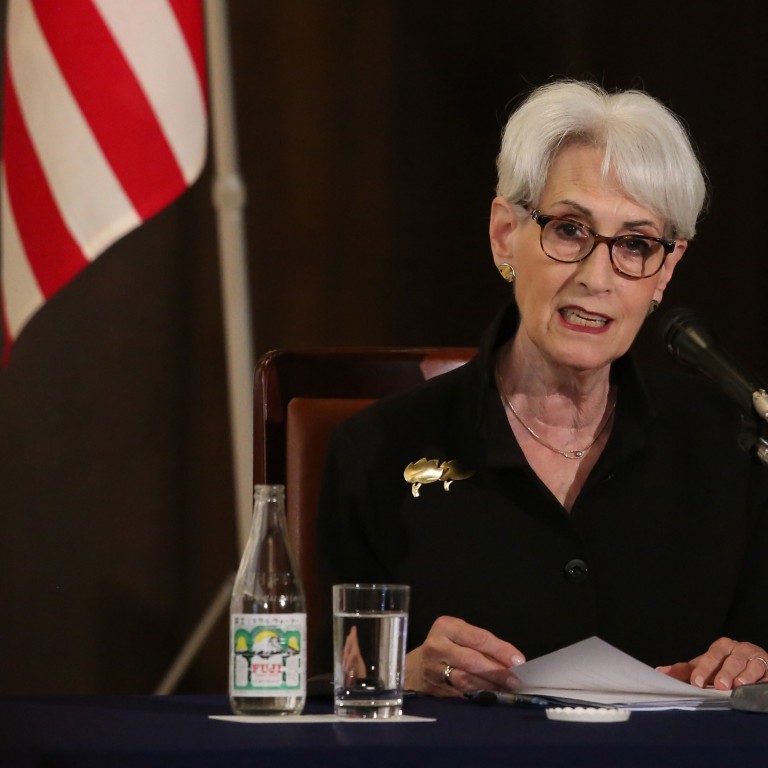
China-US Tianjin meeting comes as both sides adjust to 6 months of Biden
- Experts say the countries will ‘show their hands’ and try to improve communication
- Last time senior diplomats met face-to-face, in March, they traded sharp rebukes
President Biden told a town hall event in Ohio on Wednesday that his counterpart, Chinese President Xi Jinping, believes autocracies will triumph over democracies and that democracies need to “stand up”.
Liu Weidong, a US affairs expert at the Chinese Academy of Social Sciences, said the upcoming Tianjin meetings were not just to solve arguments but for the countries to “show their hands”. He also said the aim was to realise “better communication so as to avoid misjudgments from a lack of information. The most important thing is risk management because conflicts cannot be solved”, Liu said.
The talks will be the second face-to-face discussions between senior diplomats from the world’s two largest economies since Biden’s presidency began earlier this year. Last time the US and China met, in Alaska in March, they traded sharp rebukes.
Game on: US and China seek to pull in allies after Alaska talks

02:44
US, Britain and EU accuse China of sponsoring massive Microsoft email server hack
However, the White House’s Indo-Pacific policy director Kurt Campbell reiterated earlier this month that the Biden administration does not support Taiwan independence.
Sherman, ahead of her trip to Tianjin, visited US allies Japan and South Korea and they discussed the “importance of stability in the Taiwan Strait”, an issue deemed by Beijing as one of the most contentious with Washington. Sherman also said the one-China policy still holds.
Liu said these remarks on Taiwan would be received by China as showing good intentions but could not be seen as a sign of improving relations. “It is just their usual stance,” he said. “Of course, when they reiterate it at different times it carries diplomatic meaning.”
Biden launches Pentagon task force to review China strategy and operations
In February President Biden created a Pentagon task force to help form a comprehensive China policy. US policy towards China had more or less been set when Campbell spoke in early July, but the two sides might explain their policies towards the other, Liu added.
“The rhetoric of foreign ministry spokesmen has little substantial meaning and is aimed at domestic audiences. So before the US can confirm what China means, they cannot really establish their China policy.”
He said both sides had specific policies on issues but no apparent clarity on overall strategy. Regarding China’s attitude towards the US specifically, he said: “While combative in rhetoric, that does not mark the final note on foreign policy.”
US, China trade hacking claims on new cyberspace rivalry front
Wu Xinbo, head of the Institute of International Studies at Fudan University, expected a contentious atmosphere in Tianjin as a continuation from the Alaska meeting over issues such as the South China Sea, Hong Kong and cybersecurity.
However, he also said both sides will raise issues they still want to work together on.
State Department spokesman Ned Price said Sherman will be approaching Tianjin “from a position of strength”. Chinese foreign ministry spokesman Zhao Lijian said China would demand that the US stops interfering in its domestic affairs.
“Regrettably, there have not been areas of cooperation to limit competition. Half a year since Biden took over, both sides have less capacity to cooperate, given their domestic situations,” Ni said.
Additional reporting by Amber Wang and Rachel Zhang

